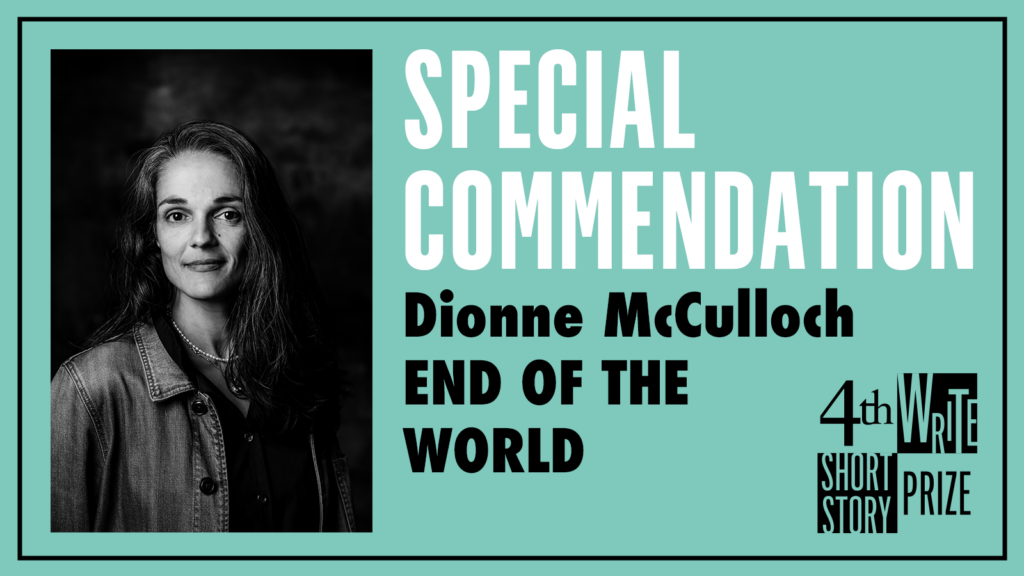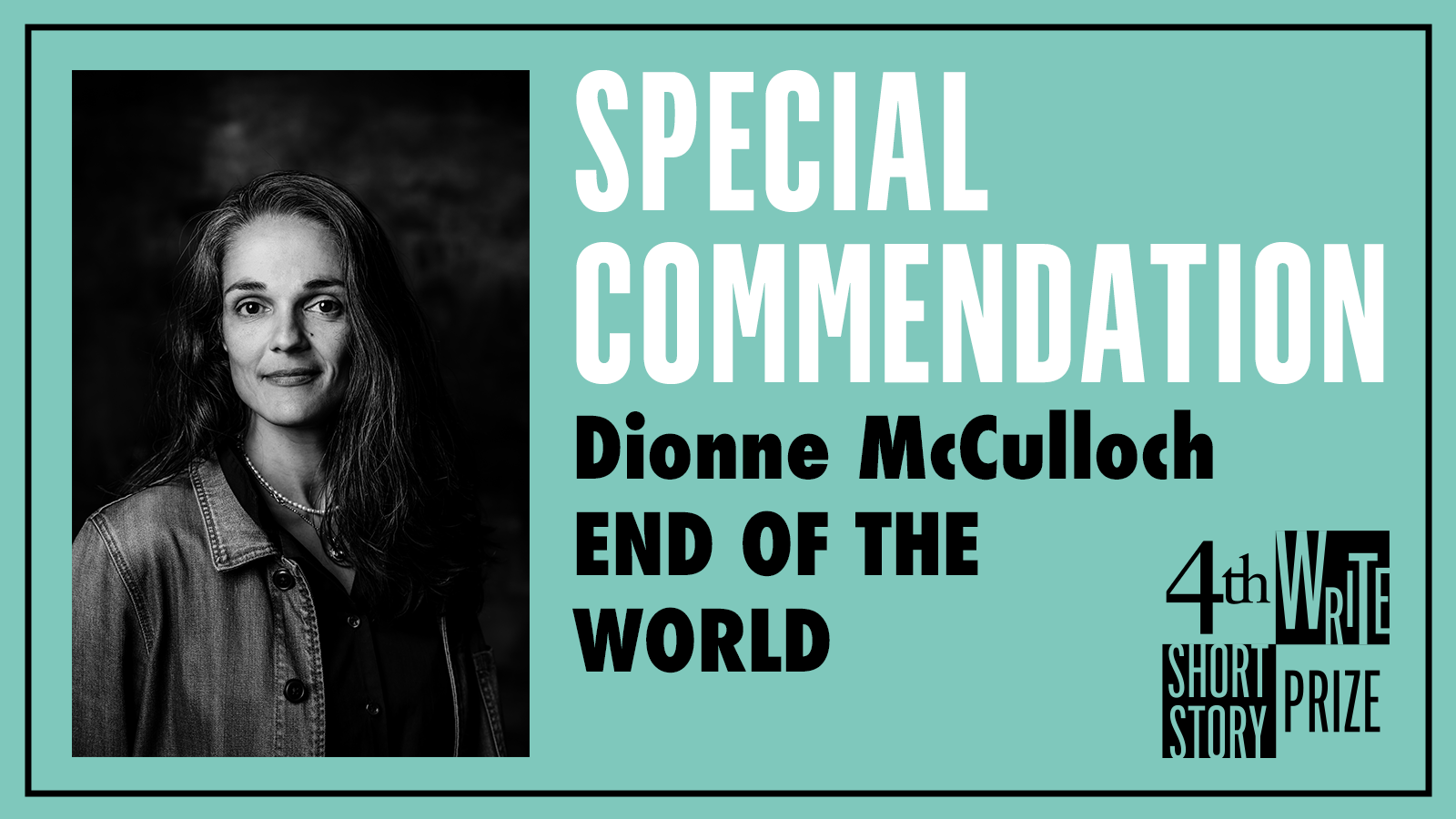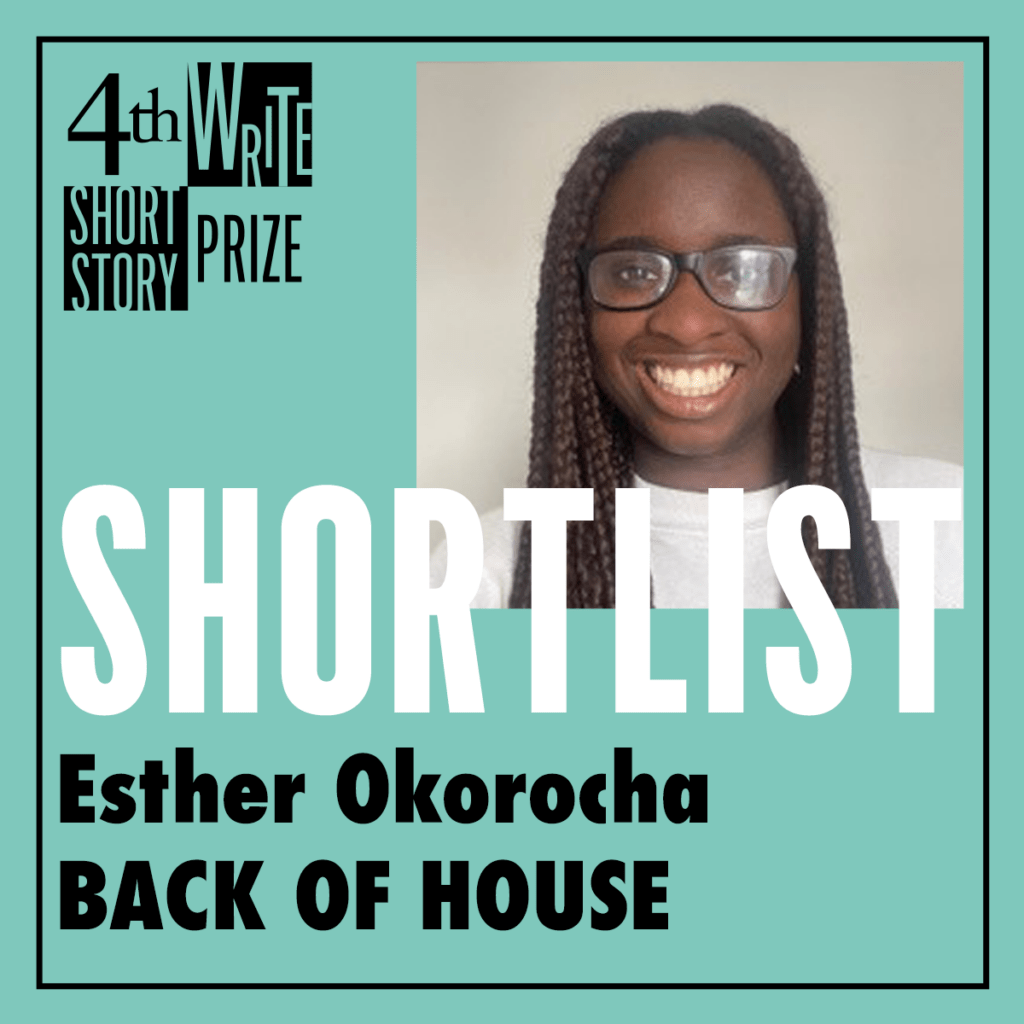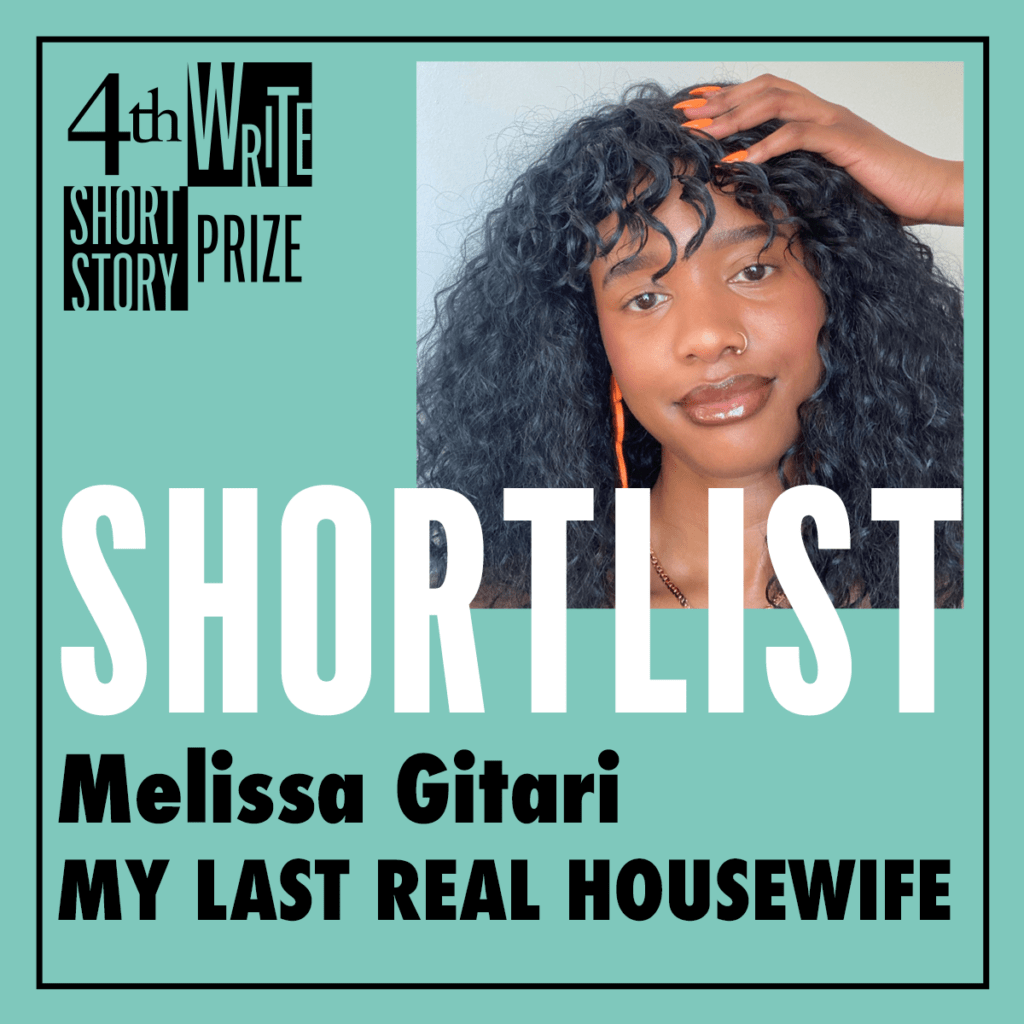
Her husband hasn’t forgiven her yet for adopting a dog without consulting him when they already have twin, 2-year old boys to chew the furniture and lay dark trails of pee across the carpet. She also never told him how near she came to drowning herself in the river last month. When she’d felt her feet sinking in the ice cold silt and the river’s flow wrap around her chest, she’d fought, flung an arm and managed to tangle her hand in a grasp of reeds.
After crawling, bone-cold, up the bank and home she’d continued grasping, for life, for reasons to keep going, and now they owned a stray.
The river is high today, the colour of chocolate, frothed milky in the middle, carrying leaf fall and tree branches twisted like grasping arms.
The dog strains on his lead. “Flash? Flash!” she calls, but he doesn’t turn. “Bowie?” Nothing. “Henry!” Again, nothing. The dog doesn’t have a name yet. How do you name a stray? Who was he, before? Or, more likely, as the woman at the shelter told her, he never had a name. He came from a flapper track, one of the unlicensed hound racetracks where dogs are kept in pens, raced hard until they’re too old or break a leg, then let loose in the woods around Taunton or Devizes, where this fool was found by the warden.
Ok, he’s not a fool, just his baleful doe-eyes give him a gormless look, actually he’s blazing, sneaky smart. Rayna imagines he survived well as a stray. He can sniff out a pub from a quarter mile and knows to nip around back to tip the bins. He knows that men who work in white vans leave pack lunches on their dash and he knows how to untie the knot in a Tesco bag. He knows how to sleep while always listening in case she nips to the toilet and leaves an entire stollën cake, fresh-dusted in icing sugar, on the counter. He knows how to eat a cake whole, gulping like a seagull, then return to his bed and feign sleep. His criminality drives her nuts. He’s only been her dog two weeks and already she’s mad in love.
Rayna turns back to the river. She considers the vertical bank, the leafless thorny tangles of wild blackberry, the lone hogweed tall and menacing as a nightmare on a glossy
slope of mud, roots pinioned against the water’s flow like a jangle of elbows. She plays a game in her head she invented as a kid: What if the world ends… now. Right now.
Her apocalypse happens all at once, leaving behind only as much of the planet as she can see from where she stands. The game’s too easy if you’re standing beside a small vegetable farm, or a deserted supermarket in a strip mall by a gun shop.
But right now her dystopia encompasses this field, the next field past the stream, the empty railway line, the river, the bank of trees. No shops or homes to loot. No crops to steal.
She has a pack of matches and a small penknife (she carries them always for this exact purpose) so she can build a fire and boil river water. But in days she’ll be starving, weak from a diet of late autumn’s shrivelled blackberries and rotten apples. How would she survive Armageddon in her tiny slice of England?
The family story about her grandpa Sunoo surviving on rotten banana peels has melted into myth. It was that other pandemic, 100 years ago, and when it hit Bombay, just like it did this century, it laid waste to both young and old. He was only 10 years old, and when he slipped from fever to coma he was lying alongside rows of other children in makeshift tents the size of airplane hangars.
First the story was he woke in a morgue. Rayna would try to imagine this boy, her grandfather, and the fear of waking surrounded by iced bodies on shelves. Later, in her teen years when she pressed for details, the story changed. It wasn’t a morgue but a mass grave outside the city. There were too many people, her mother explained. There wasn’t time to dispose of the bodies with dignity. She shudders when she tells this story even today, Rayna’s mother, who once volunteered in Mother Theresa’s Home for the Dying in Calcutta.
Survival is hard wherever you are. Back home, summer. She’d wade into a flat stretch of the Shenandoah where the water cascades shallow over rocks. She’d walk barefoot in half-steps from downstream, beneath the ripple in the deeper run, taking all day about it, bent at the waist fingers wide like a net.
It’s all about moving slow as a creeper. Find a big rock with a deep pool and submerge the hands. Wait. Hold fast even as the fingers and toes turn white, start to ache, and believe: the trout will come. No, it’s not as sleek as using a rod and line but this is an apocalypse, resources are limited. You have to make do. And when that fish noses gently into the palms of your hands and your fingers close slowly, so slowly the fish feels only a
delicate massage that strengthens to a vice, when you haul that flapping rainbow trout into the sparkling air before flinging it to the meadow grass, bash it with a rock and gut it with your knife, you will never forget that day. It will ever be your best day. Her dad was so damn happy the way he shouted when that trout basketed in the tall grass, you should have seen him. But he lent a stern caution. You’ll need to haul 10, 15 fish a day at least. It ain’t easy, but it’s better than trapping rabbits. Never eat a diet of rabbit, you hear? You’ll starve to death on fatless meat even while you suck the bones.
***
She doesn’t consider herself suicidal. Thick shadows had been misting around her since not long after the boys were born. Then they started school and it was just her and the same clumps of scrambled egg to clean off the floor, the same drizzle freckling the windows, the same sad stories on Women’s Hour.
Survival’s hard everywhere. This river here, the Avon, is deep, fast and steep. Mud- slicked and along here, too deep to wade. She knows pike, bream and perch half as tall as her swim the bottom, she’s seen them fished out, but how does she catch them unprepared? What lures to use? Where do they rest? Rayna stares into the river, overwhelmed with the impossibility of it all, her eyes lose focus, her thoughts carry away downstream. Anything could happen now.
The dog tugs the leash and her attention snaps back. He turns to her, not because she called but because he feels like it, sits politely before her, body tucked up tight like a sphinx, and asks Let me run? Let me run?
“You’re a hooligan,” she laughs.
Let me run?
She’s had dogs before, but never a stray and never a hound. Collies, shepherds, retrievers want to stay close, be obedient, protect. Such damn goody-two-shoes those dogs, always right there asking What do you need? What can I do? Why are you sad? It’s too much pressure. This dog—nothing but bone and rippled muscle, a cocked and loaded gun—has a room in its mind she will never enter, never tame. He’ll listen because he wants to; one day he may just take off.
But he’s a greedy chancer and she’s got a packet of fake bacon in her pocket. She crinkles the wrapping and he is at once so alert he vibrates. Rayna removes a piece of treat, blows three sharp whistle blasts through her lips, then gives him a bit. “Get it? You stay, I treat. Ok?” Her pulse quickens and he quivers, hyper alert to her adrenaline.
She read posts on an online Greyhound rescue group and was shocked to learn two- thirds of people never let their dogs run free. Not their whippets, their salukis, their lurchers. These gorgeous beasts built for speed, the elite racing engines of the canine world, closer in nature to birds of prey than those toy-faced hybrids every kid at the school gate now greets, living their lives tied up? It made Rayna sad.
“We can do this. Right? You and me. Let’s go.”
She unhooks the leash from his collar and begins tracking the edge of the field. Almost immediately she does her whistle and gives him a treat. He walks beside her, nose nuzzled into the palm of her hand, waiting for more. He picks up a scent and sniffs around a clump of meadow grass and she keeps walking. He follows.
They reach the end of the field and cross a small brook. The next field stretches into the distance. Beyond the trees is the railway line to London, bordered by a high fence. This near perimeter is formed by the river and the floodplain meadows. Rayna can see the fields from her house, as well as the river, across the valley and into the town beyond with its church spires and Georgian crescents. This view was why they bought the house despite its old lady smell, dusty-rose carpets in every room even the kitchen, and total lack of significant water pressure.
“Flash,” she calls and he bounds up, cold black nose already nuzzling for his treat and she decides. That’s his name. It fits.
Where the meadow ends and a copse of trees ring a retirement home and an apple orchard, a deer steps out from the tree edge. For a moment all three of them freeze, considering. Then the deer’s ear flicks and Flash explodes.
He’s deadly poetry. Rayna is exhilarated to see him in full flight. Yes, she calls the name he only got this hour, yes, she does the her three-blast whistle, but both puny sounds are blown to pieces by the wind. He thunders across the meadow, enters the woods after the deer, and Rayna is alone.
And scared. The other side of the woods is a barbed wire fence, an orchard, and then a busy road with fast-moving traffic. Beyond the hill is miles of open country. She imagines telling Richard and the boys she lost the dog and feels dizzy.
At the far end of the field a man and a woman walk a pair of black labs, nearer are two solitary walkers. No one notices her distress. She begins running and enters that nightmare of moving through treacle, making no progress, the trees receding as she nears, her panting growing ragged.
Under the trees there is no sound. There is a distinct un-sound, as though many eyes watch to see what happens next. “Flash? Flash!” She crinkles the fake bacon packet.
Crunching in the leaves, running, movement beyond the far trees. She feels the thrum of the gallop through the soles of her boots. A frenzied moment of peeled, frothing lips, wild eyes torn back in a soft head, and then the deer is past her and here comes the dog, her dog, for a moment she considers to tackle him, grab him around the chest but then she sees how fast he is moving, the very speed of him would shatter her bones, and she has no choice but to let him pass and return to her plodding chase.
Before she clears the trees there is a terrible scream from the field. It breaks the silence, sets pigeons slapping from the underbrush and rooks shrieking from the tall trees.
A terrible scream.
Rayna bursts back into the field and what she finds is violence: Flash has the deer by the throat and the deer is half on its back, half on its side and kicking wildly, fighting for purchase, desperate to land a thin hard hoof into the dog’s chest, and they are turning in slow circles like a dance, flattening the grass, while the deer screams hoarse and horrible, all its grasping for life contained in that scream. The scream travels across the field in waves, overlapping, filling every space. There is nothing but the scream.
Rayna’s hands cover her mouth, she stands frozen, sick and unsure. The other people in the field all stare. People on the far tow path bend to look through the hedge. “Help me! What do I do?” she shouts into her palms. But she already knows: the deer is mortally wounded. If she pulls Flash off now she’ll have to kill the deer herself. I’m sorry. I’m so sorry. Please, die.
What if the world ends… now? Right now. You’ll be FINE. Venison for days.
A woman has put her spaniel on the leash and the two of them are running over. Oh, thank god, Rayna thinks, overwhelmed with relief not to be alone.
The woman is shouting. “Stop it! Call off your dog! He’s killing it.”
“It’s too late,” Rayna says. The deer has stopped screaming; she has accepted her fate and her eyes, locked on Rayna, are jet black and emptying.
The spaniel strains hard at the rope, barking, excited by the smell of blood. “This is horrible. How could you?” The woman’s face is twisted in disgust.
“What? I didn’t…”
“You can’t keep a dog like that, it should be put down. I’m calling the police.” “The police? But it wasn’t on purpose!”
“People like you…”
The woman doesn’t finish. Time slows. Rayna can hear her own breath. The woman finishes. “Filthy. A filthy awful woman.”
It’s like being slapped. Rayna’s eyes sting with tears. Suddenly she’s ten years old, it’s her first day of school in Virginia, and a teacher has just politely asked if she’s a spic, black, or what.
What are you?
Then, she looked down and didn’t answer, was immediately labelled dumb on the first day of 5th grade for not knowing what she was. Now, she whispers, “You can’t speak to me like that.”
“I can and will speak however I like.” Each word a spit seed. The authority of belonging.
The woman rummages in the many pockets of her waxed-cotton Barbour jacket, dropping tissues, poo bags and a cloth hanky on the ground. “I don’t have my phone,” she announces. “I’m going home to ring the police.”
“Why can’t you just be kind?” Rayna says, and then as the woman stalks away muttering something about gypsies and filth. “Litterbug!” Rayna shouts at her retreating back. She still feels ten, the ripped naked fear of a child, she can barely see the dog, the deer, the ground through her tears.
She has to get out of here but Flash is tearing the hind leg free, digging into the meat of the haunch, eyes black with ecstasy, tail wagging hard, and Rayna doesn’t realise it but she’s sobbing, big chesty snotty sobs. She has to get out of this nightmare, pick up her children, get all of them safely home and lock the door.
A man steps out from the trees and Rayna startles before she recognises him. “David.”
ok?”
He walks nearer, his hands in his pockets, his shoulders slouched and relaxed. “Are you
Rayna holds her hands out, palms up before the darkened grass, the dog she can
hardly believe slept curled at the foot of her bed with her children this morning, the mutilated and bloody carcass.
“Don’t worry,” David says. His eyes smile. “Your dog is not the first.” “I feel terrible…”
David laughs. “Why? A dog will hunt. You are not responsible for his nature.”
David lives in the woods in a canvas and tarp tent he built within a tight thicket of ash trees. He’s from South Sudan and always immaculately dressed. He disappeared last winter but returned in the spring and Rayna felt a relief then to see smoke trailing from his stove.
Rayna slides up behind Flash, wincing and trying not to look directly at the white flashes of bone amidst the torn flesh while fumbling the leash and clipping it to the dog’s collar. Her hands slip in the warm blood. Her shoes sink in it. It takes all her body weight to pull the frenzied dog free, thick black drops falling from his open mouth.
They stand around the body and stare, Flash pulling on the rope and whining. The doe’s eyes are wide open, but vacant. The torn body a limp stuffed toy. Rayna feels a heaviness fall around her back and neck, pressing her deeper into the meadow. She feels it is her own warm blood soaking into the ground, draining from her head to leave it cold.
Dusk draws down, thick clouds have crept in to cover the sky.
“You go now. I’ll drag it to the woods. The foxes will finish it in the night.” “Really?” She is trembling, her back teeth chattering. “I’m sorry.”
“Why sorry? Go, go now,” he waves Rayna away and she wonders if he and the other men of the woods will skin and butcher the carcass themselves. A pressure expands in her throat and she steps nearer. David smells of wood smoke and hand soap. Air and earth. He takes her hand, pats it. “There, there, girl.”
***
When they are walking up the road to the school Flash lays down, still panting hard, and won’t get up. As his adrenaline ebbs, his muscles turn cold. He lays flat across the sidewalk like a rug and won’t get up until Rayna has to carry him, her back and thighs
burning as she motors up the hill with the 50 lb. dog a deadweight in her arms, stinking of death, smearing her face, hands and clothes.
She ties him up outside the playground. She’s late but still, it’s better than being early, making awkward chat with other mothers in the playground, who she’s spoken to for four years, five days a week, and never moved past the ‘can you believe this weather?’ stage.
She misses New York City like a lover, like a full glass of cold water, like the first smell of the sea.
“Rayna, what happened, are you ok?” Cassandra is the class rep and the one who filters everything to the rest of the group at their coffee mornings. She is leaning in to Rayna with her face, but her eyebrows and body pull away.
“Yes, absolutely, no problem at all, you?”
“What’s all over your clothes? Were you in an accident?”
Flash is barking from the parking lot, and both women wince. Last month a curt note in the email newsletter from the headmaster warned against dogs within 100 yards of the playground following ‘An Incident’. Rayna stares straight ahead, squinting towards the Reception door that hasn’t opened yet. The teacher, Miss Byrd, has to make eye contact with the designated guardian of each child before they are released. The door will open any second.
“Is that your dog?”
Rayna mashes her teeth together. She takes shallow, panting breaths through parted lips. Her smile, stiff as plastic, hurts her face.
“It looks like you’re covered in blood,” Cassandra says. “There’s some bits on your neck.”
Rayna feels a raw ache at the back of her throat. Pricks in her eyes. The barking is louder and now she’s sure every one of the parents in the playground is looking at her.
“Don’t people know there are rules? Honestly,” Cassandra says without taking her eyes from Rayna’s stained coat.
Miss Byrd has appeared in the Reception class door and is scanning the playground.
Rayna waves. “Over here. Boys!”
The world and its violences melt away as the teacher brings Robin and Leo to the door in their skewed ties and grey, iron-free slacks, looking as they always do at school, like solemn, rumpled, four-year-old bankers, until they see Rayna and their faces break wide like
the sun and she crouches, arms open as the two hurdle across the asphalt, racing, diving into her arms, and Rayna closes her eyes, inhales their sweet, salty heads.
***
Rayna takes Flash with her three days later when she heads into the trees towards the railway line carrying a large cardboard box filled with bars of chocolate, a sleeping bag, a new tarp and cans (not tins) of kidney beans, broad beans, chick peas, tomatoes, bean medley, pineapple and peaches. She only bought cans with pull-off tops. She didn’t account for how many she’d crammed in the box and now has to carry it while supporting the bottom which is sagging, threatening to break. Despite the struggle she keeps Flash on the lead.
She’s left supplies by the gate before, knows David received them by the quiet nod he gives her when they pass. This is her first time coming into camp. She isn’t nervous. She’s more afraid of staying home alone with her thoughts than approaching the camp of a lone man who lives in the woods.
Last night, Richard found her wiping tears from her face in the bathroom. “Honey, what’s the matter? Are you ok?”
Rayna had wet a washcloth with cold water and pressed it to her face instead of answering.
“I told you darling, there are too many deer and it wasn’t your fault.” His voice was gentle but Rayna had sensed the underlying impatience.
“Every time I close my eyes I see her. Like, when did she know she was going to die?
How much pain was she in? Is it my fault?” “Of course it’s not your fault.”
Rayna sighed, but quietly. “Anyway. I’m not crying about the deer,” she’d said. “What’s wrong then?” He’d rubbed her back with the flat of his palm. Rayna kept her
hands over her face. She wanted to tell him but her tongue felt too heavy to use. She wished the woman had hit her, left a mark he could see. She longed for a bruise, stitches even, the tangible pain of ruptured skin instead of this numb cloak of shame.
What are you?
The bathroom door slammed open, the knob cracking hard against the glass splashguard of the shower. Both Rayna and Richard had winced, then relaxed when it didn’t break. Leo stood there, one hand still on the door, and shouted “Mummy, one thousand and eight is more than one thousand!”
Rayna beckoned for Leo to climb on her lap so he could tell her every number between 850 and 1015. Richard plugged the drain and started filling the bath.
“Hello?” Rayna calls. The camp looks empty. The fire is out. There is a faded army green tent at one end of the clearing, at the far end a second, mold-etched canvas bell tent. A tarpaulin tied to a series of saplings covers a cooking area, stacked iron pans and fire pit. A series of plastic crates and plastic water cans are neatly stacked in a half-dug pit. There are sweep marks in the dirt.
Rayna sets her box down beneath the tarp on a low, wobbly table. On the table is a guttered candle, the cold wax half-filled with rain and dead insects. Beside it is a plastic box with a half-torn label. Rain-proof matches. She picks up the waterproof box but instead of matches finds a rattling assortment of minor treasures—an old and worn coin, a polished green stone, shiny white baby teeth, a piece of gold chain, and a photo of a boy. She plucks out the stone and rubs it between her finger and thumb. She slides it into the front pocket of her jeans where it presses against her thigh like a warm secret.
***
It’s been raining for two weeks, the entrance to the field is slick with thick mud that sucks at her shoes, that she skates across, arms clutching the empty air for support. She takes Flash off the leash so he doesn’t pull her over and he wanders up into the deeper grass to squat and shit, haunches quivering, ears back. He looks human, thick-shouldered and embarrassed.
Every spring after the floods, Rayna greets the meadows with fresh amazement. They’re giant sponges just upriver from the city center, soaking up millions of gallons of water through the roots of billions of plant systems, quietly saving the city from catastrophe. Where she stands now and as far as her eyes can see will be 15’ deep. Then,
like magic, the water is gone and soft rush grasses, marsh marigolds and buttercups bloom and seed before the late summer haying season.
It seems like a dream she once had. Spring. Wildflowers and soft air. Small bunches of wispy seeds floating in the air. From the steep slide into winter, spring seems impossible, but Rayna knows if she can just hang on, it will come.
Flash gallops in wide circles, bucking his hind legs like a happy pony, throwing a stick he’s found up in the air then catching it only to throw it once more.
***
Later that night when the twins are in bed, Richard makes tea in the kitchen while Rayna sits on the sofa.
She’d been to the woods earlier, in the rain. The camp was cleared. Nothing remained but a charred circle of stones. She’d sat on the ground with Flash at her feet and remembered that camping trip with her dad. She’d woken in the night. The fire glowed embers. The tent flap, unzipped, moved in the breeze. Her father slept beside her in the tent. Gentle snores. That day at the river he’d shouted, ‘That’s my girl!’ when she landed the fish and her heart caught an updraft. Best day ever, she’d whispered to herself. Remember this.
They’d roasted her trout on a fire with foraged new potatoes and crab apples grilled in whisky and brown sugar while watching sunlight bleed into purple behind rounded mountain peaks.
She was 15, and that same year he’d left. Just like that. She’d waited every day for him to come home, for the sound of his motorcycle in the driveway, his key in the door. Some part of her still waited and would wait forever. It wasn’t a new story or a unique one, it was just what happened.
Richard sets down the cups and pulls a bar of chocolate from his back pocket. “Surprise! I hid it from the boys.” He’s delighted. Rayna laughs. He pulls her feet into his lap, slides off her socks.
“I saw your friend in town.”
Rayna slides a second pillow under her head. “I have a friend?”
“David. A charity helped him find a flat. He’s in a studio above the chemist. You should have seen his face.”
Rayna can hardly speak. She’s so happy for David, relieved he isn’t in jail or dead as she’d feared. But something else. She’s thinking about her tins of food. The sleeping bag that told him he belonged in a tent, not in a studio apartment in town. She wonders who she thinks she is.
That morning before school, Robin and Leo heard the morning news on the radio in the kitchen, the day’s solemn recitation of the number of dead, and Leo made her write the number out on a piece of paper.
“That’s so many numbers, mummy,” Leo had said, his eyes watery and afraid. “Will it die you too? And daddy?”
She’d wanted to keep him home then, but Richard convinced her that would only alarm him more. So she’d taken the smooth green stone and given it to Leo, with careful instructions to bring it home. It belongs to a friend and she has to give it back. He tucked it carefully in his shirt and then patted his pocket and said ‘I promise. Safe.’
Beside the TV is a wide window that looks out over the valley. The sky is clear, and the reflection of the full moon dances on the spreading flood. From the trees, a buzzard cries. Flash sleeps curled like a fox in front of the fire, which makes a comforting hiss and crackle as sap escapes the wood.
What if the world ends… now. Right now.



